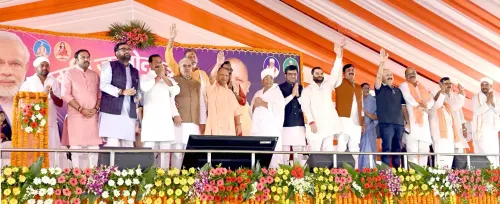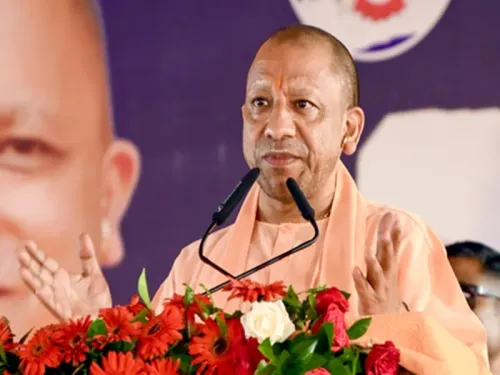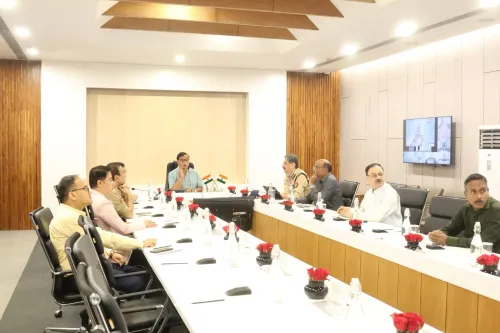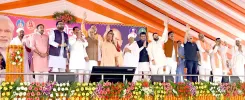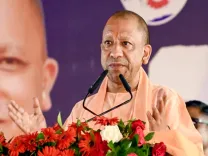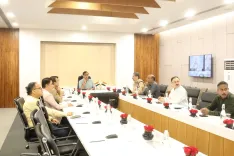Rahul Gandhi's Uncommon Accolade for 'Make In India' Initiative in Lok Sabha, Followed by Criticism
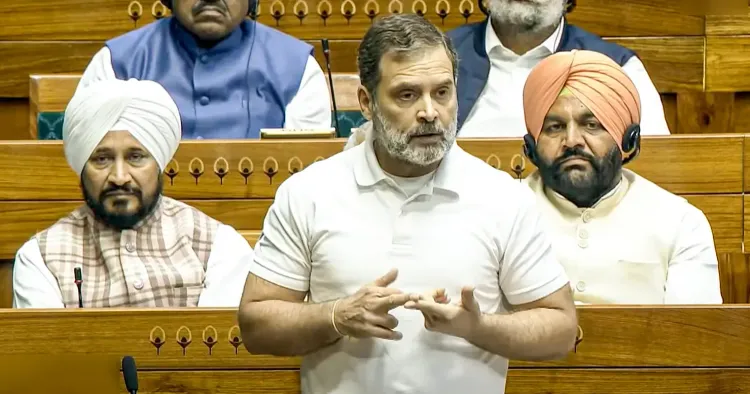
Synopsis
Key Takeaways
- Rahul Gandhi praised 'Make In India' but criticized its execution.
- Manufacturing GDP declined from 15.3% to 12.6% since 2014.
- Unemployment remains a pressing issue in India.
- China leads in technology and data crucial for production.
- Education on revolutionary technologies is vital for India's future.
New Delhi, Feb 3 (NationPress) Congress MP and the Leader of Opposition (LoP) Rahul Gandhi on Monday offered a rare commendation for the ‘Make In India’ initiative, even lauding Prime Minister Narendra Modi for the introduction of this ‘good idea’. However, he later criticized it, referring to it as a ‘damp squib’.
During the Lok Sabha session discussing the Motion of Thanks on the President’s address, Gandhi remarked that while ‘Make in India’ had a solid conceptual foundation, the Prime Minister has failed to yield tangible results despite his earnest efforts.
“The Prime Minister proposed the Make In India initiative, which I believe was a commendable idea, but the outcomes are evident to everyone,” the Congress MP stated.
He condemned the NDA administration for permitting the manufacturing sector to drop from 15.3 percent of the GDP in 2014 to 12.6 percent currently.
“I do not place the blame solely on the Prime Minister; it would be unjust to assert he didn’t attempt. I would suggest he tried but did not succeed,” he added.
Discussing the issue of unemployment, Gandhi asserted that India has collectively failed in addressing joblessness.
“Both the UPA and NDA governments have failed to provide solutions to the youth regarding unemployment,” he remarked.
Earlier, he indicated that the President’s address seemed to be a reiteration of past speeches and lacked innovative ideas, offering to present a blueprint for an address that an INDI bloc would propose upon assuming power.
Referring to unemployment as a social dilemma linked to social unrest, Gandhi pointed out that the increasing prison population and escalating expenditures on police and internal security are indicators of growing social tension in the nation.
Addressing policymakers, he insisted that the country must better organize its production.
“Since 1990, all governments have excelled in organizing consumption or services, yet production and manufacturing have lagged behind,” he observed.
Gandhi characterized the upcoming era as a pivotal battle between electric motors and internal combustion engines, highlighting the four technologies fueling this revolution: electric motors, batteries, optics, and artificial intelligence.
“AI alone is ineffective without data. Currently, it is apparent that the production data used to create mobile phones and cars is held by China, while consumption data is dominated by the US,” he remarked, urging India to reflect on the data that will propel its AI revolution.
“The reality is disheartening; India lacks any substantial data,” he stressed, advocating for the education of children about these four revolutionary technologies and the establishment of a production network to access production data.
He asserted that China possesses at least a ten-year advantage over India in utilizing these technologies, emphasizing the urgent need to develop capabilities in these domains.
rch/mr

